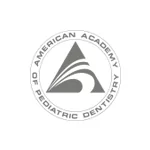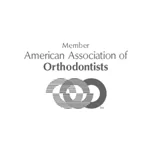
Cavities are one of the most common chronic diseases affecting children today. Over 40% of children have cavities by the time they reach kindergarten. Fortunately, there are many effective ways parents can help prevent cavities in kids and stop existing ones from getting worse.
This article will provide tips on limiting sugary foods, maintaining good oral hygiene, monitoring symptoms, using over-the-counter remedies, and more.
Why Do Cavities Form?
In order to know what anticavity products to choose, you should first seek to understand how and why cavities occur. While genetics do play a factor, they’re hardly the whole story.
The fact is, cavities form “when there’s an imbalance in the oral bacterial population, leading to a malfunction in the dental biofilm (plaque). This imbalance is often exacerbated by acidic conditions in the mouth, primarily caused by dietary choices, especially frequent consumption of sugary foods and drinks. The constant battle between demineralization and remineralization of the enamel is pivotal. When the balance tips towards demineralization, cavities begin to form.”
How to Prevent Cavities From Getting Worse
The best way to deal with cavities is to prevent them in the first place. However, even if a child already has some decay, there are steps parents can take to stop it from advancing further. Arresting cavity growth before it turns into a severely painful hole in the tooth is important. Here are some useful tips.
1. Limit Sugary Foods
Sugar is the primary food source for the bacteria that cause cavities. The more frequently kids eat sugary snacks, the higher their risk. Limiting sugary foods is an essential cavity prevention strategy.
Specifically, parents should restrict sugary treats like candy, cookies, cake, and sugary cereals. Beverages like soda and sweet tea can also cause major tooth decay, so limit those as well. Focus on healthy whole foods instead, like fruits, vegetables, nuts, eggs, cheese and lean protein.
If kids do eat sweets, have them rinse their mouths with water afterward. When possible, consume these treats along with meals instead of as stand-alone snacks. This decreases the time when acid attacks the teeth.
2. Maintain Good Oral Hygiene
Thorough oral hygiene is vital for combating cavities. Help kids brush properly twice a day with a soft-bristled toothbrush. Use about a pea-sized amount of either fluoride toothpaste or other high-quality toothpaste, depending on your child’s age (more on that later!)
If you take one thing away from this blog post, it is this: Good oral hygiene and cavity prevention is about much more than just avoiding sugar, brushing daily, or using fluoride. Other factors that many people don’t take into account that contribute to good oral hygiene, or the lack thereof, include:
- The importance of mouth pH
- Saliva vs. dry mouth
- The oral microbiome
- Healthy enamel
What’s more, it’s important to keep your child’s age and ability in mind when thinking about their dental care and cavity prevention, as well as their risk factor to certain oral care ingredients.
Kids’ motor skills allow increasing independence with brushing starting around age 4. However, continue providing supervision and spot-cleaning hard-to-reach places. Also, teach them to swish the toothbrush bristles along their gum lines as well as tooth surfaces.
Don’t forget to teach your little one the importance of flossing, either! Flossing also removes plaque between teeth that brushing misses. Have kids floss once daily before bedtime. Several flossing tools can make the process simpler if dexterity is an issue.
Lastly, schedule regular dental exams according to your dentist’s recommendation. Typically every 6 months covers a complete cleaning and assessment for emerging problems.
3. Monitor Symptoms and Pain
Pay attention if your child complains of tooth pain when eating or drinking cold, hot, or sweet foods. This discomfort indicates possible decay. Also, watch for questionable dark spots or holes appearing. Catching cavities early increases opportunities for simpler treatment.
Likewise, be alert to sudden unexplained toothaches. Continuous throbbing may signal an abscess (infection) forming beneath the tooth’s surface. This requires prompt dental intervention before the problem spreads. Report any suspicious symptoms at your child’s next dental appointment.
4. Use Over the Counter Medications
For mild tooth sensitivity or pain, over-the-counter remedies can temporarily relieve discomfort until seeing a dentist. However, don’t rely on these as substitutes for professional treatment.
The most effective option is ibuprofen, due to its anti-inflammatory properties. Acetaminophen also eases pain. Products marketed specifically for toothaches contain these ingredients plus topical pain relievers like eugenol or benzocaine. Use caution with numbing gels in young children, avoiding contact with the gums or swallowing.
5. Gargle With a Saltwater Rinse
For minor irritation, swelling a salt water rinse soothes inflamed tissues. Simply stir a teaspoon of table salt into a cup of warm water.
Have kids swish this mixture around the affected area for 30 seconds then spit it out. Its mild antibacterial effect helps flush bacteria from the mouth. Use this rinse a few times daily until seeing the dentist.
6. Choose Anticavity Products Wisely
At The Super Dentists, we don’t believe in “one-size-fits-all” approaches to dentistry. The reality is that every patient is unique and so are their dental needs! What’s more, kids’ oral development happens in distinct stages.
Therefore, what works for your toddler may not work for your teen. Whereas your teen or pre-teen may have a low risk associated with using a fluoridated toothpaste, for instance, you’d be wise to avoid such a product with your baby or toddler.
As is the case when catering your approach to oral care with your child by age and stage, so too should you cater your approach to choosing anticavity products by age and stage.
To Use Fluoride or Not: That is the Question
Whether you’re choosing toothpaste or mouthwash, many parents wonder if using fluoride for their children is safe. The honest answer? It depends!
If your child is old enough to safely gargle or use toothpaste without much if any risk of swallowing, they may be able to use fluoride. But should they? That also depends. A good rule of thumb is that if they have had more than 2 cavities in the last 2 years, fluoride may be advisable (but always check with your dentist first!) This is because it can help remineralize teeth, providing resistance against acidic substances that dissolve a tooth’s natural hydroxyapatite.
But for some children, including toddlers and babies, fluoride is not advisable. In these cases, using a product with OTC hydroxyapatite rather than fluoride, like SuperMouth Hydroxamin® non-Fluoride Toothpaste is usually best.
Fun fact: did you know that SuperMouth Hydroxamin includes both nano-hydroxyapatite with vitamins K2 & D3 to restore the tooth’s natural hydroxyapatite without fluoride while restoring the oral microbiome?
How to Identify Cavities in Children
Catching cavities early allows simpler treatments. But how do parents recognize the early signs of tooth decay? Here is what to look for while brushing, flossing, or eating.
First, inspect all surfaces of kids’ teeth regularly. Look for tiny white, brown, or black spots appearing on the enamel. These indicate areas losing minerals, which is the initial phase of cavity development. Also, examine between teeth for similar spots where enamel eroded completely.
Additionally, stained fissures and pits on chewing surfaces signify decay starting in vulnerable crevices. Feel these regions for slimy plaque collecting inside deep grooves. Report any suspicious discolored lesions to the dentist right away before they progress.
How Can You Reverse Cavity Growth?
So, can you stop a cavity from getting worse? Unfortunately, you can’t and this is why it’s so important to get your kids to a dentist regularly.
While cavities can’t be reversed once the enamel erodes fully, it is possible to stop and remineralize damage in the beginning phases. This requires removing bacteria fueling acid production and then rebuilding lost tooth minerals.
Dentists have various methods to achieve this for early non-cavitated (no hole yet) lesions. Applying highly concentrated fluoride is very effective for rebuilding crystals. But Hydroxamin®
Is also proven to be effective. This is why SuperMouth toothpaste for adults and (certain) children utilizes both Hydroxamin® and fluoride.
Promptly treating early decay combined with diligent oral hygiene can turn around cavity formation before holes result.
Can You Heal a Cavity Naturally?
Once a true cavity forms, removing the diseased inner structure is unavoidable. However, some evidence shows certain dietary measures help support the tooth after restorative treatment. This may strengthen surrounding enamel and minimize recurrence risk.
First, ensure a daily calcium intake according to recommended dietary allowances for age. Dairy products provide the most easily absorbed source. Calcium-fortified non-dairy milk and juices are suitable alternatives for intolerant kids. This mineral is essential for rebuilding strong enamel.
Some research also indicates the mineral xylitol prevents bacteria from adhering to teeth. Regular gum or lozenge use reduces acid production after meals.
Thus, it helps remineralization efforts between exposures to sugar. Xylitol products aim to stimulate saliva flow as well. More alkaline saliva neutralizes acid and enhances mineral redeposition.
Probiotic supplements may benefit oral health too, according to emerging evidence. Certain strains reduce cavity-causing streptococci bacteria levels while increasing defensive ones.
The best results come from starting kids on “good” bacteria early. Discuss incorporating kid-friendly chewable or powdered formulas with your pediatrician.
Can You Prevent a Cavity From Worsening? Final Thoughts
Left unchecked, cavities progress from minor enamel loss to severely infected pulp then abscess formation. But parents can intervene by implementing responsible hygiene and dietary strategies starting even before teeth first appear.
Consistent prevention efforts continued throughout childhood pay dividends in minimizing lifetime decay risks.
This is why it’s essential to schedule regular dental checkups for your child. Click here to get your kid the treatment they need with the help of The Super Dentists!
Want to learn more about age and stage based oral care and anticavity products? Check out SuperMouth age and stage based kids’ mouth care systems here.









